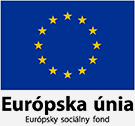About project
National Institute for Certified Educational Measurementsis realizing a national project Increasing quality of primary and secondary education with the use of electronic testing, finaced from EU resources.Why electronic testing?
It is a modern tool for student assessment and flexible verification of mastering the learning content, thematic unit or grade. We will enable our schools to perform a faster form of testing of students’ knowledge, which is also used by well-developed Western- and Northern EU countries. We will use the online space of the young generation for objective and secure testing. As of 2015, the PISA testing in OECD member states will be realised solely electronically. We have positive experience - more than 80 % of teachers and students in the Slovak Republic consider Maturita examination online more efficient than its paper version.
Project outputs
- ca 30,000 new units from general education subjects
- ca 130 new tests from educational fields and key competencies
- creation of nationwide electronic database of units and tests
- modern, software-secure processing and assessment of tests and units
- engaging the teachers from different regions in the development of tests and units
- support of teachers’ expert potential and creativity
Anticipated Results
- monitoring of quality trends in schools
- promotion of school self-evaluation
- provision of modern, practical electronic tools for teachers to ensure continuous assessment of students’ level of attainment and skills in various subjects
- monitoring the students’ level of attainment, skills and key competencies
- making student assessment more objective
- launching of new, large database of task items and tests for the 2nd grade of primary schools and for secondary schools (ISCED 2 and ISCED 3 levels)
- creation of new database of task items and tests for national measurements (Testing 9; external part of the Maturita examination)
- free of charge training of teachers in the creation of innovative e-tests and e-task items
- motivation of creative teachers
- more frequent utilisation of e-assessment of students’ knowledge throughout the school year
- elimination of students’ uncertainty and fear of electronic testing
- free of charge ICT training of the school’s online testing administrators
- detection of the schools’ technical preparedness for the online testing (ICT state of affairs, Internet connection stability in primary and secondary schools)
- research analyses of schools’ measurable outputs.





